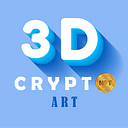All about Rights related to NFTs
Modern life has become more and more digital. Almost everything we do has a digital component to it. Our finances, social lives, and identities are all now stored online. This move to the digital world has led to the rise of a new type of asset: the non-fungible token (NFT).
NFTs are unique and represent an individual asset rather than a collective unit like shares in a company. Unlike other assets, NFTs cannot be replicated or counterfeit, making them ideal for collecting and investing.
NFTs are also used to represent fractional ownership of assets, loyalty points, or rewards. They have many potential applications, and the use cases are beyond imagination. You can also use NFT to represent ownership of works of art, collectibles, ticketing, and more.
As this new technology develops, it’s important to understand the various rights related to NFTs.
If you want to know the rights related to NFTs, keep reading and be a part of our community at Discord!
Top 6 NFTs Rights
NFTs are still in their early stages of development, and it is essential to be cautious while buying or selling them. Several scams have been targeting NFT investors, and many exchanges do not yet offer the same level of security as traditional exchanges.
Therefore, do your research and only buy from reputable sources. With the right precautions, NFTs can be a safe and easy way to invest in the future of digital assets. So here are the top 6 NFTs rights given below:
1. NFTs do not confer any intellectual property rights: This means that if you purchase an NFT, you are not purchasing the underlying work of art itself. You are merely purchasing the right to display that work of art in your digital space.
2. NFTs are subject to anti-money laundering regulations: If you purchase an NFT, you may be required to disclose your identity and provide proof of funds.
3. Data hosting: Data hosting is a key use case for NFTs. Because they are digital assets, they can be stored on blockchain platforms or other repositories making them ideal for hosting large amounts of data securely and efficiently.
4. Data protection: Data protection regulations are critical when it comes to NFTs. Because NFTs are digital assets, they fall under the scope of data protection laws. This means that you need to take steps to protect the personal data of anyone who owns an NFT.
5. Taxation aspects: Taxation aspects are also crucial regarding the NFTs. Since these tokens represent unique assets, the tax implications for owning and trading them can be complicated. It’s important to work with an experienced tax professional to ensure you follow all the relevant rules to avoid any costly mistakes.
6. Use trusts properly: A trust is a legal entity that holds assets on behalf of another person or group. This ensures that the NFTs are safe and can only be accessed by authorized individuals.
Conclusion
We’ve covered every right related to NFTs, so it’s time for you to go out and buy some! Seriously though, we think that Non-Fungible Tokens are a great investment as they offer security, transparency, and accountability — while being backed by the blockchain.
Not only that, but NFT also has the potential to revolutionize how digital goods are traded online. If you want to get in on the ground floor of this exciting new technology, now is the time!
Have any questions about NFT rights? Let us know in the comments below or DM us on Instagram!
